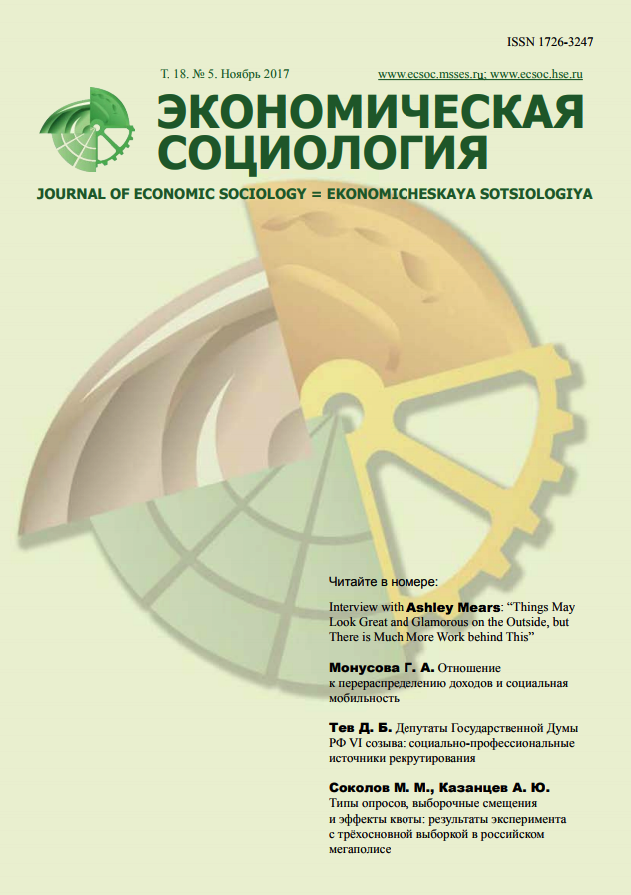Bottom-up Resistance of Business in the System of Pirahna Capitalism in Post-Soviet States.
Book Review: Markus S. (2015) Property, Predation and Protection: Piranha Capitalism in Russia and Ukraine, Cambridge: Cambridge University Press, 256 p.
Abstract
The book Property, Predation and Protection: Piranha Capitalism in Russia and Ukraine, written by Stanislav Markus, promotes the alternative concept of property rights, which explains the vulnerability of private business and property rights in developing economies on the basis of two cases—Russia and Ukraine. The author not only explores the transformation of the core fields of a contemporary economical system within the post-communist states, but also analyzes modern capitalism, focusing on the categories of current interest—threats to property rights, predation of private property, and strategies of protection. The type of property-right threats referred to by Markus as “agent predation” is characterized by the absence of the state as a powerful center, which no longer produces main threats toward business. Moreover, the state in transit economies still own the limited capacity to create the institutional design of capitalism. The main argument of the book is that the state is not the only actor able to protect property rights. Sakaeva discusses critical approaches toward the state-centric framework, increasingly relied on by scholars of property rights in developing states. Sakaeva focuses on the definition, stages, reasons, and consequences of agent predation in post-Soviet capitalism and its common features of and differences from other types of property rights threats. The review also explores resources and methods of protection used by private owners against low-level nonstate aggressors.













